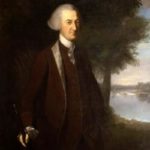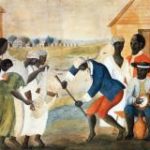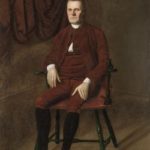This is the first of three revisits to the Declaration of Independence; three communities to which the tenets of life, liberty, and the pursuit of happiness did not apply. Byron Williams, author of The Radical Declaration, walks us through how enslaved Americans and Black Americans pushed against the document from the very beginning of our nation’s founding.
This short episode includes a one-page Graphic Organizer for students to take notes on while listening, as well as discussion questions on the back side.
Founding Documents: Declaration of Independence Podcast
America declared independence on July 2, 1776. But two days later, it adopted this radical, revolutionary, inclusive, exclusive, secessionist, compromising, hypocritical, inspirational document. What does it say? What does it ignore? This episode features many scholars with differing opinions on the Declaration: Danielle Allen, Byron Williams, Cheryl Cook-Kallio, Woody Holton, and Emma Bray.
This short episode includes a one-page Graphic Organizer for students to take notes on while listening, as well as discussion questions on the back side.
Williams-Yulee v. Florida Bar (2015)
Does a law that prohibits candidates for judicial office from personally asking for campaign funds violate the First Amendment? This case summary looks at First Amendment protections against Florida Bar Association regulations.
Famous Founders

This short video expands the definition of “famous Founder.” Men like George Washington, Thomas Jefferson, Benjamin Franklin, and James Madison are readily considered to be famous. However, Professor Daniel Dreisbach suggests that individuals such as Roger Sherman, John Dickinson, John Witherspoon, and Elbridge Gerry are equally deserving of fame and honor for their contributions during our nation’s founding era.
How Did the Constitutional Convention Deal with Slavery?

This short video explains the differing perspectives that emerged about the Constitution and slavery. Some, like Frederick Douglass, believed that the Founders put slavery on the road to extinction while others, like Roger Taney, believed that the Constitution was a slaveholders’ document. Professor Gordon Lloyd contends that the slavery clauses in the Constitution both limited and expanded slavery’s impact, and that the Founders alone do not bear responsibility for slavery’s later expansion.
Act I: What Were the Various Plans at the Constitutional Convention?

This short video highlights the four plans discussed during the first two weeks of the Convention: Madison’s Virginia Plan; Sherman’s New Jersey Plan; Hamilton’s “monarchical” plan; and, finally, Madison’s amended Virginia Plan. Each plan attempted to reconcile the potential conflicts between a strong national government and strong state governments. Professor Gordon Lloyd notes that an inability to compromise resulted in a stalemate after the first two weeks.